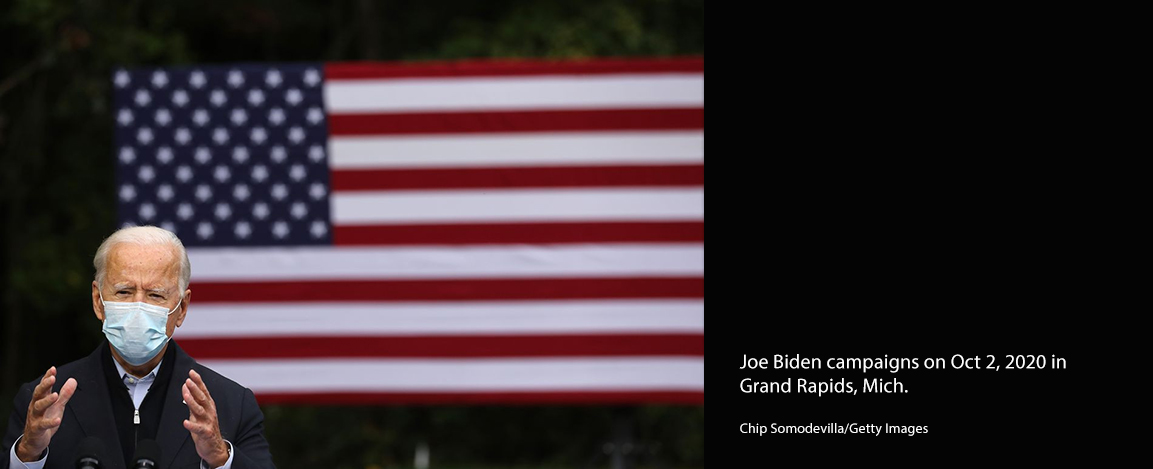Joe Biden talks about “friends and allies” as if they’re the same thing. They aren’t. Patrick Porter and Joshua Shifrinson explain in Politico, first published here.
The 2020 contest between Donald Trump and Joe Biden has thrown into stark relief two distinct understandings of the United States’ relationship with its allies. Trump is famously said to view allies in transactional terms as partners of convenience that may need to be coerced or even cast aside. Biden and his team, in contrast, have been at pains to present the United States’ allies in personal terms—as what Biden calls the nation’s “friends.”
Biden and his advisers regularly equate alliances with friendships: Biden has promised to ”stand with our allies and friends,” accused Trump of “stiff-arming our friends” in Europe, and advocated “a united front of friends and partners” to challenge China. Vice presidential nominee Kamala Harris uses similar language, calling for the United States “to be loyal to [its] friends. People who’ve stood with you, got to stand with them.”
Amid the competitive world of international politics, even close allies have interests that diverge; even when they have common interests, they are not equally felt. Moreover, major powers like the United States often have multiple alliances, some of which conflict with one another. And because international conditions can change, allies often do need to be pressured and, sometimes, abandoned—just as today’s ally can become tomorrow’s enemy (and vice versa).
Rhetoric aside, the United States has never treated alliances as friendships. For one thing, prior presidents have coerced allies behind closed doors, threatening long-standing partners such as South Korea over their pursuit of nuclear weapons. Similarly, the second Bush and Obama administrations regularly aired grievances with US allies in a bid to pressure them to accede to US interests. For example, former Secretary of Defense Robert Gates criticized NATO members for failing to be “serious and capable partners in their own defense;” former Secretary of State Colin Powell threatened those who opposed the 2003 Iraq War with punishment and hinted at possible abandonment; and even President Barack Obama accused allies from Europe to the Middle East of seeking a “free ride” on American power while dragging the United States into their own conflicts.
Just as the United States has not been above browbeating its partners, so too has the U.S often changed its “friends” for the sake of larger interests. The United States de-recognized its Taiwanese ally in 1979 in order to gain the People’s Republic of China as an ally against the Soviet Union. Likewise, US leaders have had little compunction ending US partnerships with the Kurds. And, lest we forget, the United States’ German and Japanese “friends” were anything but prior to 1945.
By falsely equating alliances with friendships, Biden and his team run serious risks. The rhetoric of friendship obscures the reality of US foreign policy to the American people. For a campaign that prides itself on restoring the public’s trust in government, this is a serious problem, risking public backlash if Biden is elected while forgoing an opportunity to improve the quality of policy discussions.
Equally important, the approach risks undermining international stability by giving US partners ill-placed faith in US commitments. After four years of the Trump administration’s bullying, allies from Canada to Germany to South Korea worry about American reliability and seek a course correction. In pledging fidelity to its “friends,” however, the Biden approach risks going too far in the opposite direction. It could create a false expectation among allies of a restored friendship with Washington without conditions. It could even tempt allies to take US support for granted and behave recklessly.
At a time of geopolitical change, a sounder approach instead would acknowledge the reality that alliances hinge on common interests and, as such, are neither permanent nor inviolate. One does not need to support Trump’s foreign policy to accept this point. Ultimately, America’s allies would be foolish to expect that under a Biden presidency, America would replace self-interest with friendship.
Likewise, Americans should not expect their allies to align their interests with Washington consistently. The underlying goal should be to embrace a prudent alliance-management strategy, one that avoids bullying allies at the drop of a hat yet recognizes that—unlike friendships—coercion, pressure, and threats of abandonment are often the coin of the realm. Only if policymakers act upon this messy reality can we hope for a more peaceful world and sounder American policy.
Patrick Porter is professor of international security and strategy at the University of Birmingham, a senior associate fellow with the Royal United Service Institute and fellow of the Quincy Institute.
Joshua Shifrinson is an assistant professor of international relations at Boston University, an associate of the MIT Security Studies Program and non-resident fellow with the Quincy Institute.




